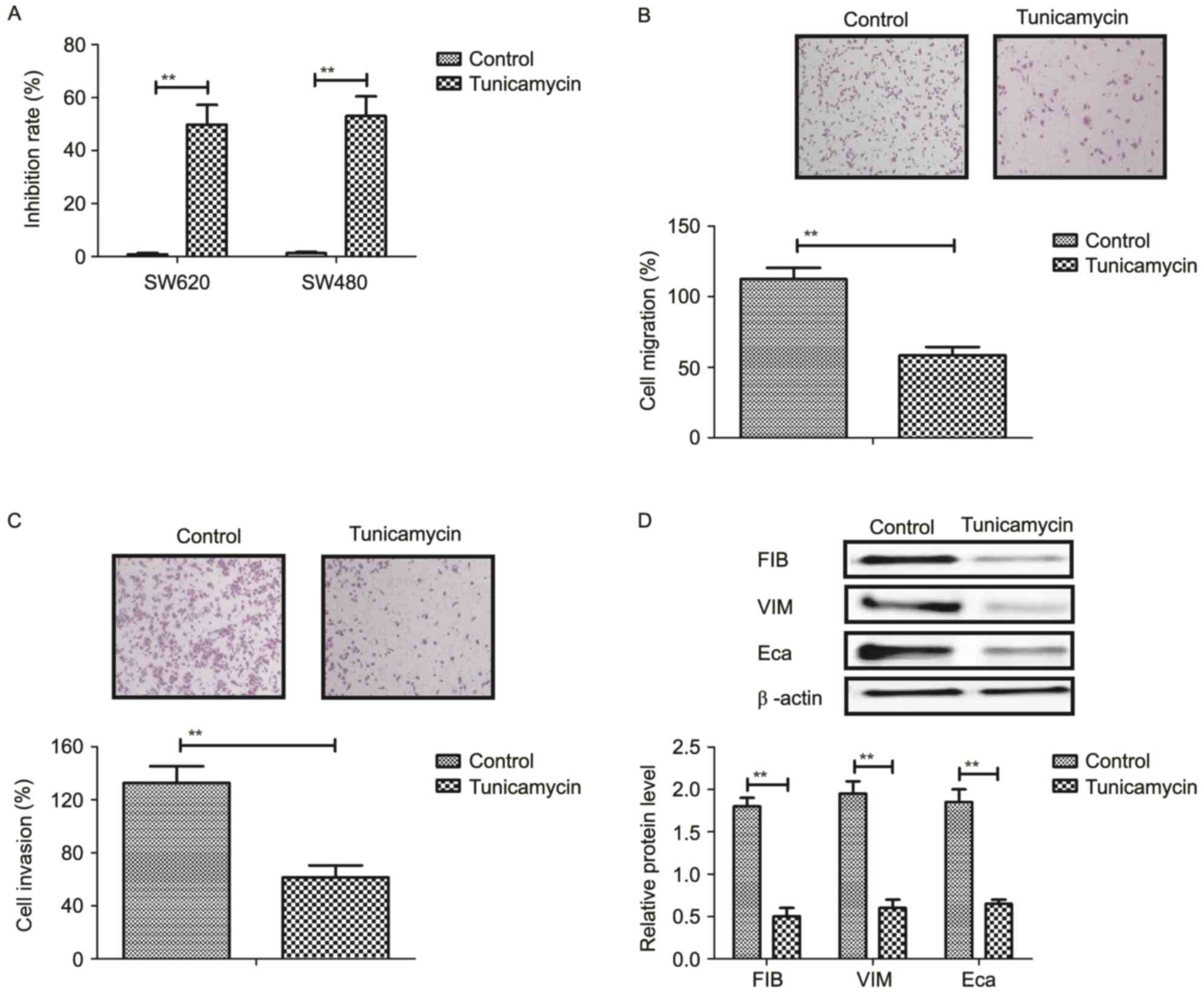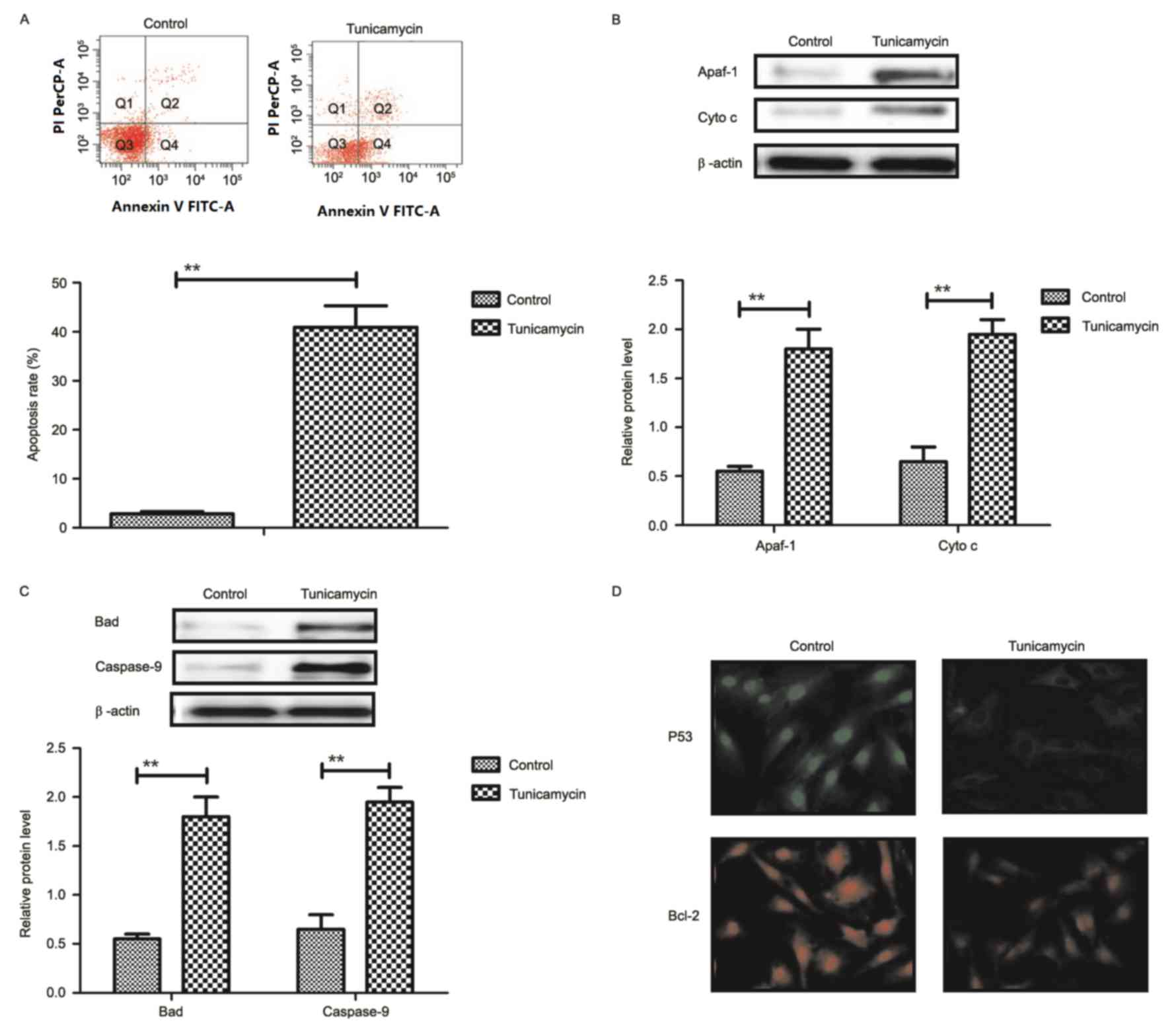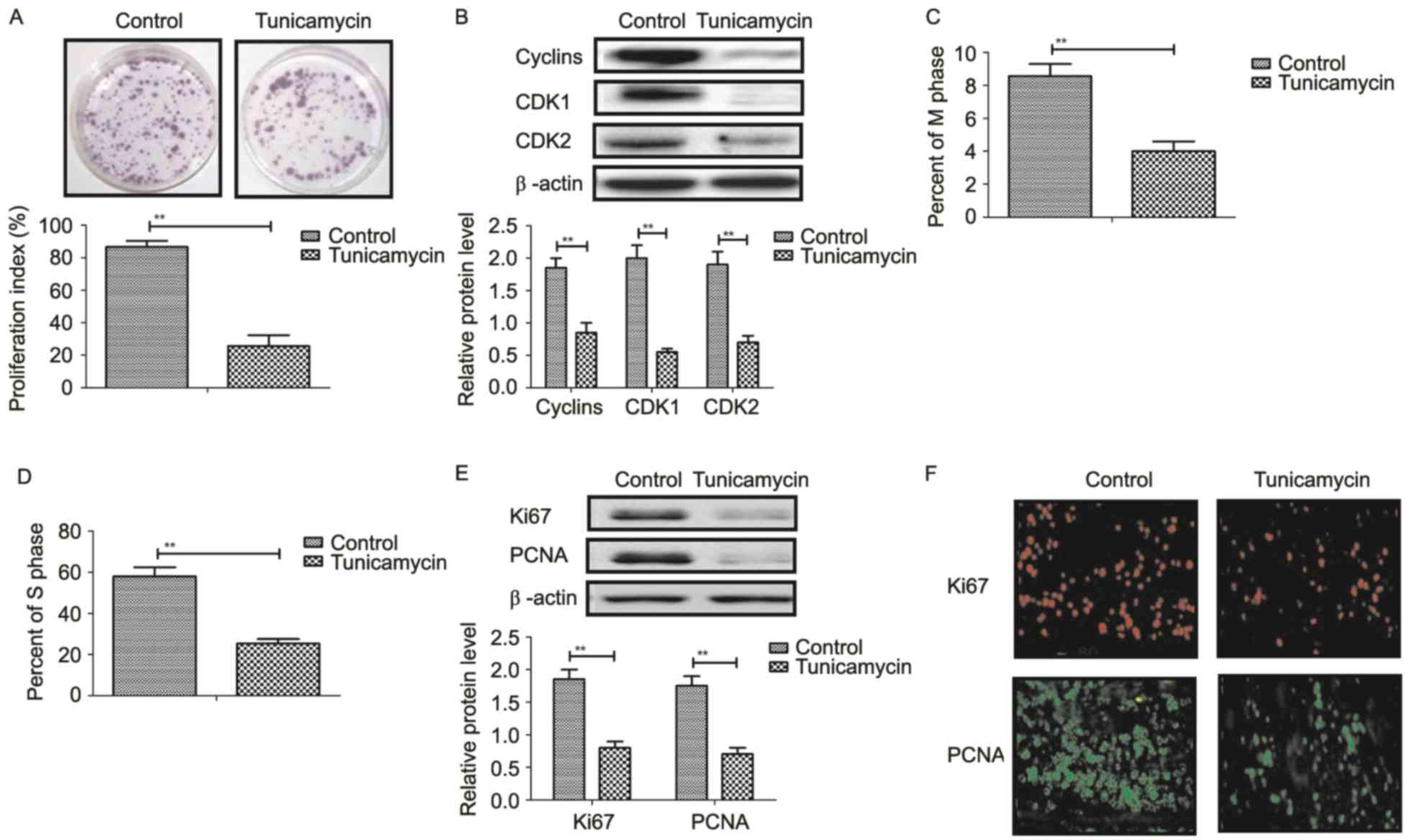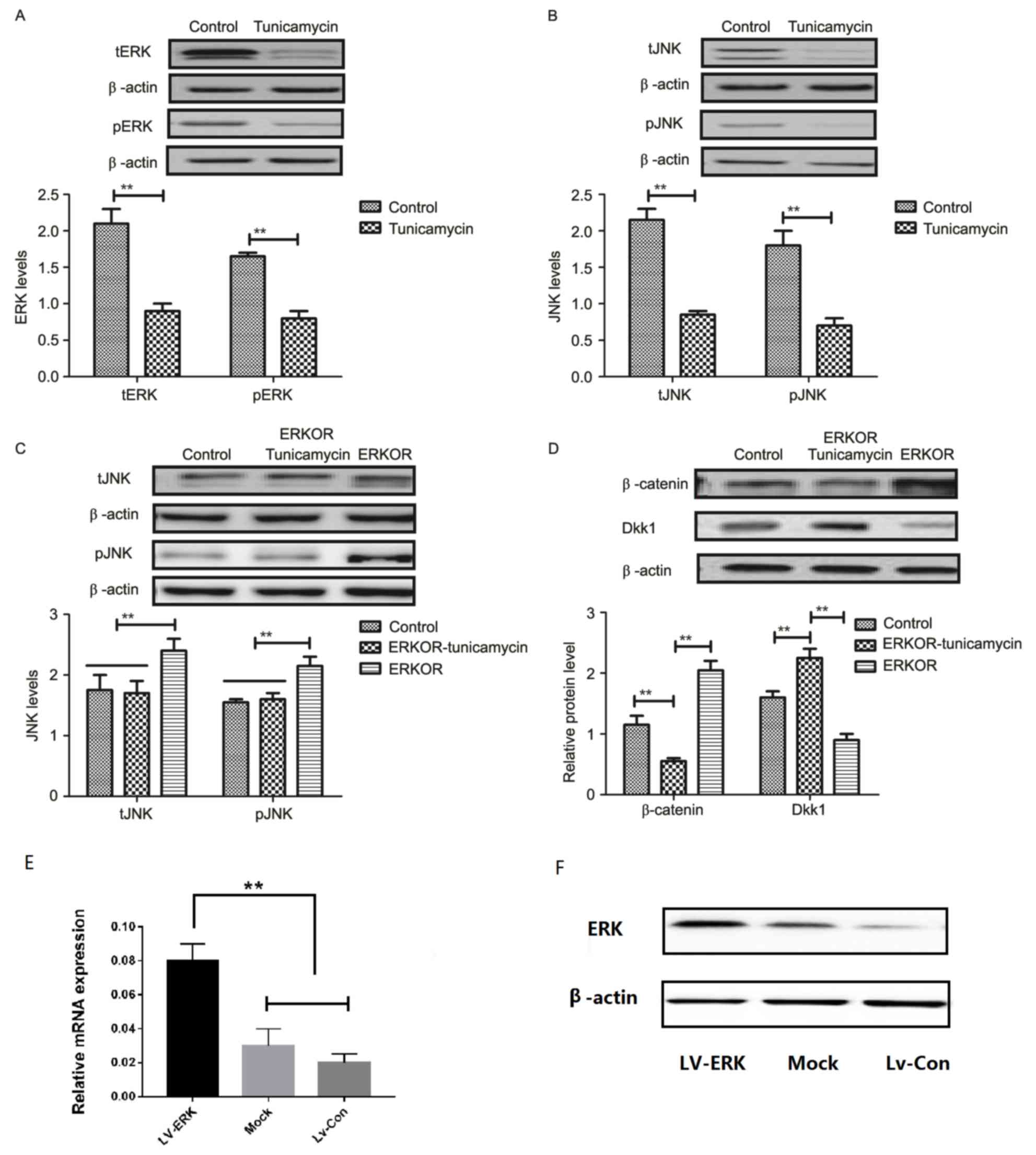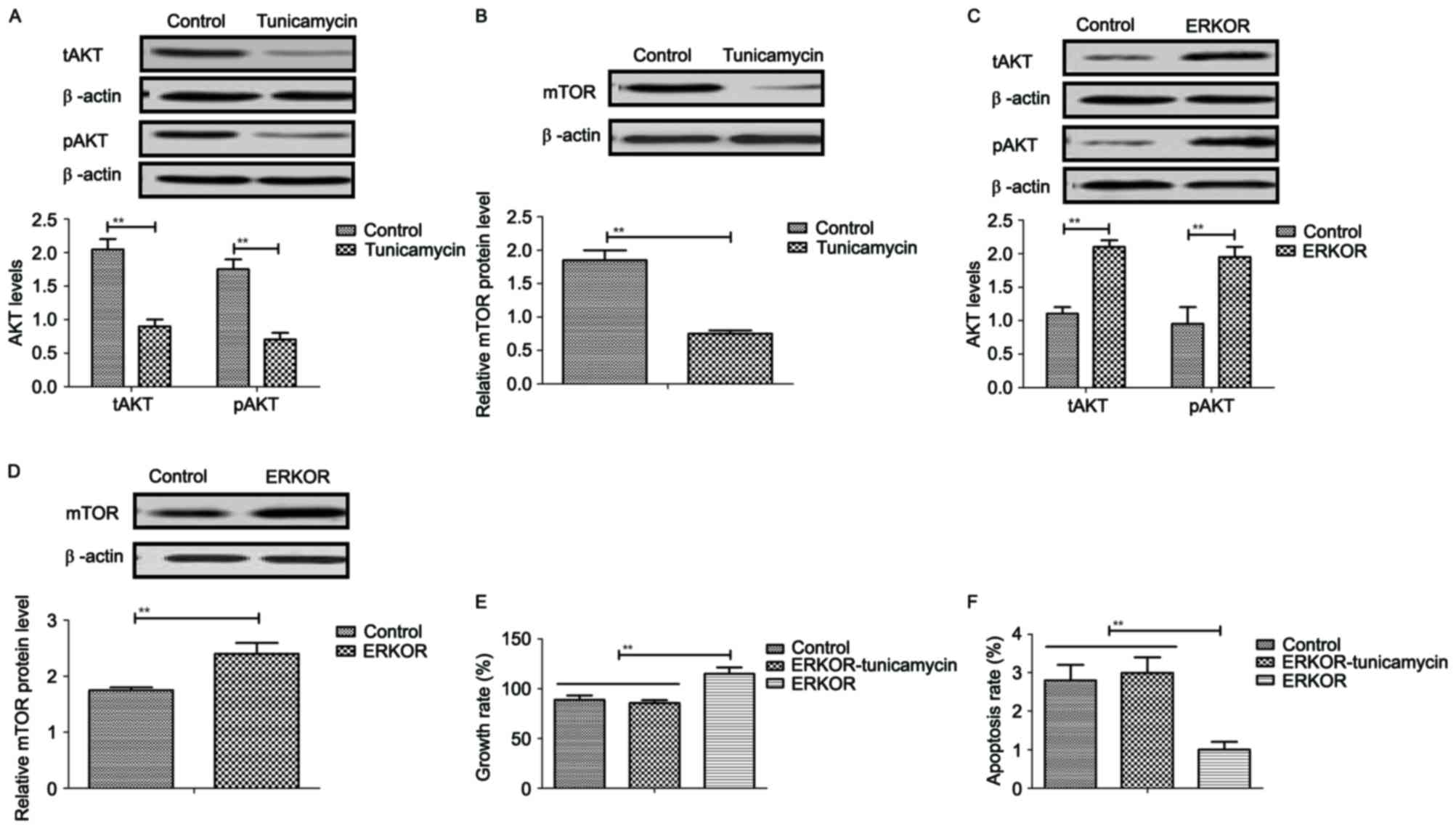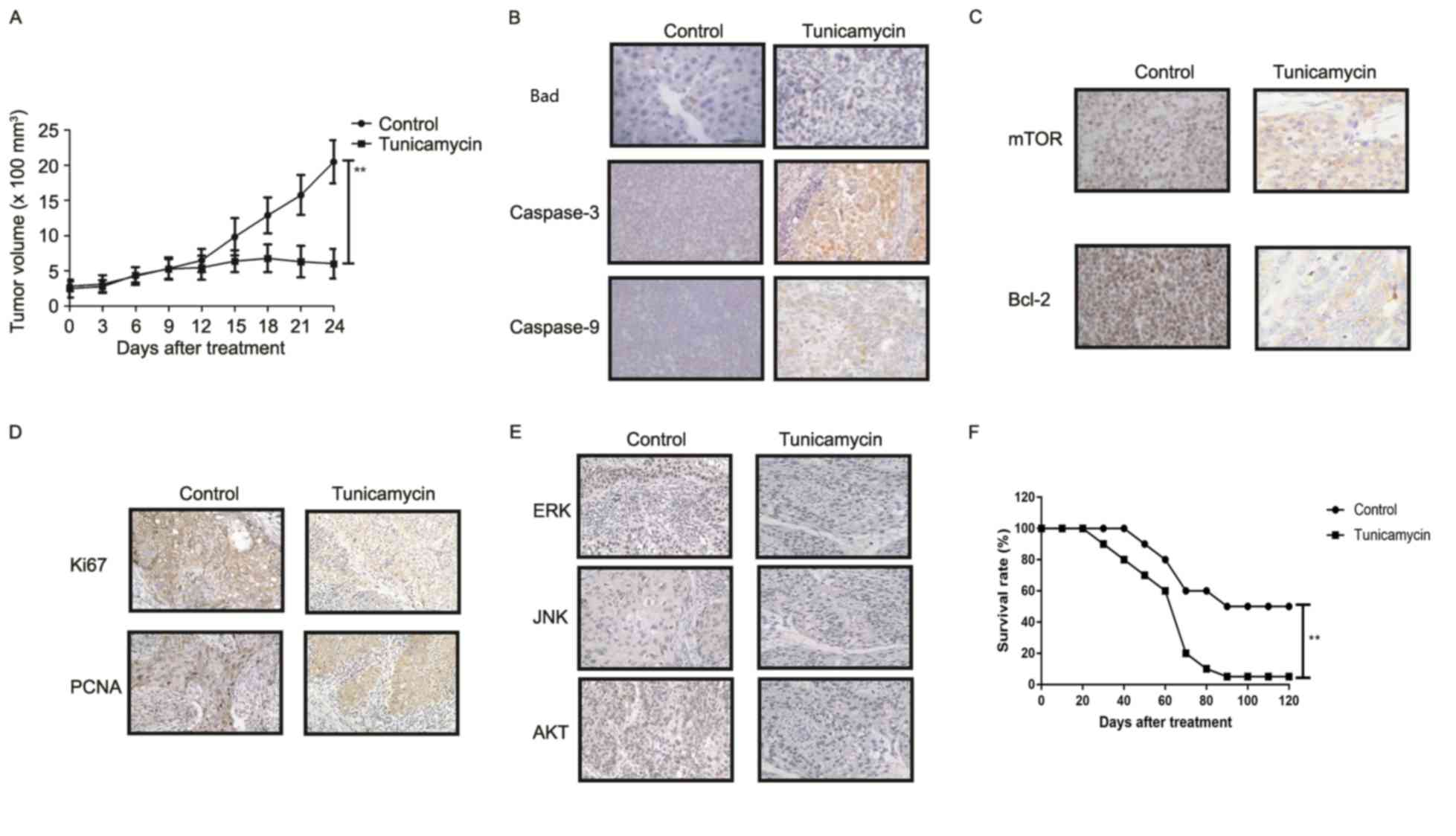|
1
|
Siegel R, Desantis C and Jemal A:
Colorectal cancer statistics, 2014. CA Cancer J Clin. 64:104–117.
2014. View Article : Google Scholar : PubMed/NCBI
|
|
2
|
Hirai HW, Tsoi KK, Chan JY, Wong SH, Ching
JY, Wong MC, Wu JC, Chan FK, Sung JJ and Ng SC: Systematic review
with meta-analysis: Faecal occult blood tests show lower colorectal
cancer detection rates in the proximal colon in
colonoscopy-verified diagnostic studies. Aliment Pharmacol Ther.
43:755–764. 2016. View Article : Google Scholar : PubMed/NCBI
|
|
3
|
Fahrner R, Theis B, Ardelt M, Rauchfuss F,
Schüle S and Settmacher U: Rapid progressive colon cancer
metastasized to the right epididymis and liver: Report of a case
and review of the literature. Int J Colorectal Dis. 31:721–722.
2016. View Article : Google Scholar : PubMed/NCBI
|
|
4
|
Gall TM, Markar SR, Jackson D, Haji A and
Faiz O: Mini-probe ultrasonography for the staging of colon cancer:
A systematic review and meta-analysis. Colorectal Dis. 16:O1–O8.
2014. View Article : Google Scholar : PubMed/NCBI
|
|
5
|
Kim HD, Ha KS, Woo IS, Jung YH, Han CW and
Kim TJ: Tumor lysis syndrome in a patient with metastatic colon
cancer after treatment with 5-fluorouracil/leucovorin and
oxaliplatin: Case report and literature review. Cancer Res Treat.
46:204–207. 2014. View Article : Google Scholar : PubMed/NCBI
|
|
6
|
Petrelli F, Tomasello G, Borgonovo K,
Ghidini M, Turati L, Dallera P, Passalacqua R, Sgroi G and Barni S:
Prognostic survival associated with left-sided vs right-sided colon
cancer: A systematic review and meta-analysis. JAMA Oncol. Oct
27–2016.(Epub ahead of print).
|
|
7
|
Moilanen JM, Kokkonen N, Löffek S,
Väyrynen JP, Syväniemi E, Hurskainen T, Mäkinen M, Klintrup K,
Mäkelä J, Sormunen R, et al: Collagen XVII expression correlates
with the invasion and metastasis of colorectal cancer. Hum Pathol.
46:434–442. 2015. View Article : Google Scholar : PubMed/NCBI
|
|
8
|
Fan Z, Cui H, Xu X, Lin Z, Zhang X, Kang
L, Han B, Meng J, Yan Z, Yan X and Jiao S: MiR-125a suppresses
tumor growth, invasion and metastasis in cervical cancer by
targeting STAT3. Oncotarget. 6:25266–25280. 2015. View Article : Google Scholar : PubMed/NCBI
|
|
9
|
Siani LM and Garulli G: Laparoscopic
complete mesocolic excision with central vascular ligation in right
colon cancer: A comprehensive review. World J Gastrointest Surg.
8:106–114. 2016. View Article : Google Scholar : PubMed/NCBI
|
|
10
|
Ma J, Ma P, Zhao C, Xue X, Han H, Liu C,
Tao H, Xiu W, Cai J and Zhang M: B7-H3 as a promising target for
cytotoxicity T cell in human cancer therapy. Oncotarget.
7:29480–29491. 2016.PubMed/NCBI
|
|
11
|
Hamamoto R and Nakamura Y: Dysregulation
of protein methyltransferases in human cancer: An emerging target
class for anticancer therapy. Cancer Sci. 107:377–384. 2016.
View Article : Google Scholar : PubMed/NCBI
|
|
12
|
Matsui H, Ito H, Taniguchi Y, Takeda S and
Takahashi R: Ammonium chloride and tunicamycin are novel toxins for
dopaminergic neurons and induce Parkinson's disease-like phenotypes
in medaka fish. J Neurochem. 115:1150–1160. 2010. View Article : Google Scholar : PubMed/NCBI
|
|
13
|
Reszka N, Krol E, Patel AH and Szewczyk B:
Effect of tunicamycin on the biogenesis of hepatitis C virus
glycoproteins. Acta Biochim Pol. 57:541–546. 2010.PubMed/NCBI
|
|
14
|
Nami B, Donmez H and Kocak N:
Tunicamycin-induced endoplasmic reticulum stress reduces in vitro
subpopulation and invasion of CD44+/CD24- phenotype breast cancer
stem cells. Exp Toxicol Pathol. 68:419–426. 2016. View Article : Google Scholar : PubMed/NCBI
|
|
15
|
Miyake H, Hara I, Arakawa S and Kamidono
S: Stress protein GRP78 prevents apoptosis induced by calcium
ionophore, ionomycin, but not by glycosylation inhibitor,
tunicamycin, in human prostate cancer cells. J Cell Biochem.
77:396–408. 2000. View Article : Google Scholar : PubMed/NCBI
|
|
16
|
Shiraishi T, Yoshida T, Nakata S, Horinaka
M, Wakada M, Mizutani Y, Miki T and Sakai T: Tunicamycin enhances
tumor necrosis factor-related apoptosis-inducing ligand-induced
apoptosis in human prostate cancer cells. Cancer Res. 65:6364–6370.
2005. View Article : Google Scholar : PubMed/NCBI
|
|
17
|
Ling YH, Li T, Perez-Soler R and Haigentz
M Jr: Activation of ER stress and inhibition of EGFR
N-glycosylation by tunicamycin enhances susceptibility of human
non-small cell lung cancer cells to erlotinib. Cancer Chemother
Pharmacol. 64:539–548. 2009. View Article : Google Scholar : PubMed/NCBI
|
|
18
|
de Freitas Junior JC, Silva Bdu R, de
Souza WF, de Araújo WM, Abdelhay ES and Morgado-Diaz JA: Inhibition
of N-linked glycosylation by tunicamycin induces
E-cadherin-mediated cell-cell adhesion and inhibits cell
proliferation in undifferentiated human colon cancer cells. Cancer
Chemother Pharmacol. 68:227–238. 2011. View Article : Google Scholar : PubMed/NCBI
|
|
19
|
BukurovaIu A, Khankin SL, Krasnov GS,
Grigor'eva ES, Mashkova TD, Lisitsin NA, Karpov VL and Beresten'
SF: Comparison of 2D analysis and bioinformatics search efficiency
for colon cancer marker identification. Mol Biol (Mosk).
44:375–381. 2010.(In Russian). PubMed/NCBI
|
|
20
|
Thompson BA, Goldgar DE, Paterson C,
Clendenning M, Walters R, Arnold S, Parsons MT, Michael DW,
Gallinger S, Haile RW, et al: A multifactorial likelihood model for
MMR gene variant classification incorporating probabilities based
on sequence bioinformatics and tumor characteristics: A report from
the colon cancer family registry. Hum Mutat. 34:200–209. 2013.
View Article : Google Scholar : PubMed/NCBI
|
|
21
|
Renshaw A and Elsheikh TM: A validation
study of the Focalpoint GS imaging system for gynecologic cytology
screening. Cancer Cytopathol. 121:737–738. 2013. View Article : Google Scholar : PubMed/NCBI
|
|
22
|
Livak KJ and Schmittgen TD: Analysis of
relative gene expression data using real-time quantitative PCR and
the 2(-Delta Delta C(T)) method. Methods. 25:402–408. 2001.
View Article : Google Scholar : PubMed/NCBI
|
|
23
|
Bai FL, Yu YH, Tian H, Ren GP, Wang H,
Zhou B, Han XH, Yu QZ and Li DS: Genetically engineered Newcastle
disease virus expressing interleukin-2 and TNF-related
apoptosis-inducing ligand for cancer therapy. Cancer Biol Ther.
15:1226–1238. 2014. View Article : Google Scholar : PubMed/NCBI
|
|
24
|
Stipa F, Burza A, Curinga R, Santini E,
Delle Site P, Avantifiori R and Picchio M: Laparoscopic colon and
rectal resections with intracorporeal anastomosis and trans-vaginal
specimen extraction for colorectal cancer. A case series and
systematic literature review. Int J Colorectal Dis. 30:955–962.
2015. View Article : Google Scholar : PubMed/NCBI
|
|
25
|
Nadler A, McCart JA and Govindarajan A:
Peritoneal carcinomatosis from colon cancer: A systematic review of
the data for cytoreduction and intraperitoneal chemotherapy. Clin
Colon Rectal Surg. 28:234–246. 2015. View Article : Google Scholar : PubMed/NCBI
|
|
26
|
Pandor A, Eggington S, Paisley S,
Tappenden P and Sutcliffe P: The clinical and cost-effectiveness of
oxaliplatin and capecitabine for the adjuvant treatment of colon
cancer: Systematic review and economic evaluation. Health Technol
Assess. 10:iii–iv, xi-xiv, 1–185. 2006. View Article : Google Scholar : PubMed/NCBI
|
|
27
|
Millat B, Rougier P, Aparicio T, Guimbaud
R and Chaussade S: Conference review. Colon cancer: What treatment
in 2004? The point in five questions. Ann Chir. 130:277–283.
2005.(In French).
|
|
28
|
Chibaudel B, Bonnetain F, Tournigand C and
de Gramont A: Maintenance treatment in metastatic colorectal
cancer. Lancet Oncol. 16:e583–e584. 2015. View Article : Google Scholar : PubMed/NCBI
|
|
29
|
Kim MK, Kang YJ, Kim DH, Hossain MA, Jang
JY, Lee SH, Yoon JH, Chun P, Moon HR, Kim HS, et al: A novel
hydroxamic acid derivative, MHY218, induces apoptosis and cell
cycle arrest through downregulation of NF-κB in HCT116 human colon
cancer cells. Int J Oncol. 44:256–264. 2014. View Article : Google Scholar : PubMed/NCBI
|
|
30
|
Wan Y, Xin Y, Zhang C, Wu D, Ding D, Tang
L, Owusu L, Bai J and Li W: Fermentation supernatants of
Lactobacillus delbrueckii inhibit growth of human colon cancer
cells and induce apoptosis through a caspase 3-dependent pathway.
Oncol Lett. 7:1738–1742. 2014. View Article : Google Scholar : PubMed/NCBI
|
|
31
|
Lee JS, Jung WK, Jeong MH, Yoon TR and Kim
HK: Sanguinarine induces apoptosis of HT-29 human colon cancer
cells via the regulation of Bax/Bcl-2 ratio and caspase-9-dependent
pathway. Int J Toxicol. 31:70–77. 2012. View Article : Google Scholar : PubMed/NCBI
|
|
32
|
Travica S, Pors K, Loadman PM, Shnyder SD,
Johansson I, Alandas MN, Sheldrake HM, Mkrtchian S, Patterson LH
and Ingelman-Sundberg M: Colon cancer-specific cytochrome P450 2W1
converts duocarmycin analogues into potent tumor cytotoxins. Clin
Cancer Res. 19:2952–2961. 2013. View Article : Google Scholar : PubMed/NCBI
|
|
33
|
Rawłuszko AA, Sławek S, Gollogly A,
Szkudelska K and Jagodziński PP: Effect of butyrate on aromatase
cytochrome P450 levels in HT29, DLD-1 and LoVo colon cancer cells.
Biomed Pharmacother. 66:77–82. 2012. View Article : Google Scholar : PubMed/NCBI
|
|
34
|
Dowling CM, Herranz Ors C and Kiely PA:
Using real-time impedance-based assays to monitor the effects of
fibroblast-derived media on the adhesion, proliferation, migration
and invasion of colon cancer cells. Biosci Rep. 34:pii: e001262014.
View Article : Google Scholar
|
|
35
|
Kim J, Kang HS, Lee YJ, Lee HJ, Yun J,
Shin JH, Lee CW, Kwon BM and Hong SH: EGR1-dependent PTEN
upregulation by 2-benzoyloxycinnamaldehyde attenuates cell invasion
and EMT in colon cancer. Cancer Lett. 349:35–44. 2014. View Article : Google Scholar : PubMed/NCBI
|
|
36
|
Heckmann D, Maier P, Laufs S, Li L,
Sleeman JP, Trunk MJ, Leupold JH, Wenz F, Zeller WJ, Fruehauf S and
Allgayer H: The disparate twins: A comparative study of CXCR4 and
CXCR7 in SDF-1α-induced gene expression, invasion and
chemosensitivity of colon cancer. Clin Cancer Res. 20:604–616.
2014. View Article : Google Scholar : PubMed/NCBI
|
|
37
|
Radziwon-Balicka A, Santos-Martinez MJ,
Corbalan JJ, Corbalan JJ, O'Sullivan S, Treumann A, Gilmer JF,
Radomski MW and Medina C: Mechanisms of platelet-stimulated colon
cancer invasion: Role of clusterin and thrombospondin 1 in
regulation of the P38MAPK-MMP-9 pathway. Carcinogenesis.
35:324–332. 2014. View Article : Google Scholar : PubMed/NCBI
|
|
38
|
Lee YS, Kim SY, Song SJ, Hong HK, Lee Y,
Oh BY, Lee WY and Cho YB: Crosstalk between CCL7 and CCR3 promotes
metastasis of colon cancer cells via ERK-JNK signaling pathways.
Oncotarget. 7:36842–36853. 2016.PubMed/NCBI
|
|
39
|
Chen J, Shao R, Li F, Monteiro M, Liu JP,
Xu ZP and Gu W: PI3K/Akt/mTOR pathway dual inhibitor BEZ235
suppresses the stemness of colon cancer stem cells. Clin Exp
Pharmacol Physiol. 42:1317–1326. 2015. View Article : Google Scholar : PubMed/NCBI
|
|
40
|
Zhang X, Shi H, Tang H, Fang Z, Wang J and
Cui S: miR-218 inhibits the invasion and migration of colon cancer
cells by targeting the PI3K/Akt/mTOR signaling pathway. Int J Mol
Med. 35:1301–1308. 2015. View Article : Google Scholar : PubMed/NCBI
|
|
41
|
Ponnurangam S, Standing D, Rangarajan P
and Subramaniam D: Tandutinib inhibits the Akt/mTOR signaling
pathway to inhibit colon cancer growth. Mol Cancer Ther.
12:598–609. 2013. View Article : Google Scholar : PubMed/NCBI
|
|
42
|
Emenaker NJ, Calaf GM, Cox D, Basson MD
and Qureshi N: Short-chain fatty acids inhibit invasive human colon
cancer by modulating uPA, TIMP-1, TIMP-2, mutant p53, Bcl-2, Bax,
p21 and PCNA protein expression in an in vitro cell culture model.
J Nutr. 131 11 Suppl:3041S–3046S. 2001. View Article : Google Scholar : PubMed/NCBI
|















